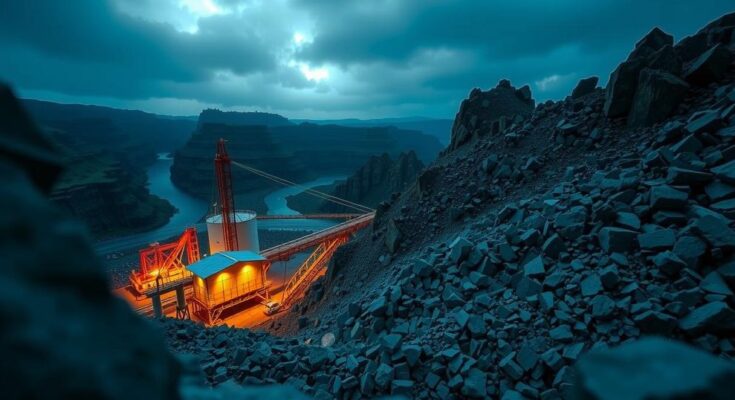The surge in cobalt demand from Europe has highlighted the complexities of sourcing this critical mineral from the DRC, where ethical concerns and historical exploitation shape current relationships. European policymakers stress the need for sustainable practices while facing obstacles from the dominant Chinese processing sector, as local Congolese stakeholders assert their rights and desires in trade negotiations.
The cobalt boom in the Democratic Republic of the Congo (DRC) has raised concerns and opportunities for Europe as it seeks reliable raw materials for its energy transition. European Parliament member Marie-Pierre Vedrenne emphasizes the necessity for Europe to collaborate on establishing sustainable sourcing while ensuring ethical practices. In contrast, Congolese miners like Paul Zagabe Nbanze report a disconnection from the lucrative market that exploits their resources, as Europe increasingly relies on DRC’s cobalt, which is critical for battery production.
With two-thirds of the world’s cobalt sourced from DRC, Europe is faced with a dependency on both Congolese mining and Chinese processing infrastructures. Analysis by climate and energy expert Cecilia Trasi highlights a significant challenge; while Europe requires cobalt, China dominates the processing sector, creating a situation where European nations must negotiate with Chinese interests for resource utilization.
Former Congolese Minister of Mines, Simon Tuma Waku, calls for respect for African nations’ autonomy, asserting that investment should align with local demands. The history of exploitation in DRC complicates current relations, as past injustices give rise to confidence among Congolese stakeholders who are now advocating for equitable partnerships.
While initiatives like the Lobito Corridor project aim to enhance infrastructure and connectivity, enabling direct access for DRC resources to European markets, China’s grip on Congolese exports remains strong. Despite EU efforts for better collaboration and development partnerships through initiatives such as the Global Gateway, Europe is unlikely to dethrone China as the primary trading partner in the DRC.
Cobalt, a key material used in batteries, has garnered immense attention as Europe strives to transition to sustainable energy solutions. The DRC, being the primary supplier of cobalt, presents both challenges and opportunities due to its mining practices, the need for ethical sourcing, and existing dependencies on Chinese processing. The historical context of exploitation in the region adds layers to contemporary negotiations, as Congolese authorities seek fairer economic relations with foreign partners, particularly European states. The balance of power is shifting as African nations assert greater control over their resources, seeking to ensure that international investments benefit local communities and economies.
In summary, the cobalt boom in the DRC presents a complex scenario for Europe. The reliance on Congolese cobalt and the challenges posed by Chinese control over processing underscore the need for strategic partnerships that prioritize ethical sourcing and benefit-sharing with local communities. As European initiatives aim to enhance investment and cooperation, they must navigate historical grievances and establish genuine collaborations with DRC, ensuring that the voices of Congolese stakeholders are both heard and respected.
Original Source: www.dw.com




